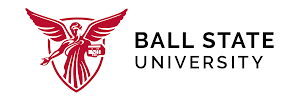Ball State University Online Family Nurse Practitioner Programs
What to Expect from the Ball State University Online Family Nurse Practitioner Programs
General Graduate Nursing Admissions Requirements: Students must hold a current, unencumbered RN license. Applicants must have a minimum GPA of 3.0 or higher and have taken an undergraduate research course with a passing grade of C or better. Application materials include an application, application fee, transcripts, three letters of recommendation, proof of nursing license, a criminal history disclosure, a nursing questionnaire, and nursing goals and objectives. No GMAT or GRE is required.
- Specific Program Requirements:
- MSN: Students must hold a BSN degree from an ACEN or CCNE-accredited program
- Post-Master’s Certificate: Students must hold an MSN degree from an ACEN or CCNE-accredited program
State Restrictions: Ball State University accepts students from some states and is currently in the process of seeking approval from all states. The following states are fully approved for online MSN study through Ball State: Florida, Illinois, Indiana, Kentucky, Michigan, Ohio, Oregon, and Utah. Approval in Washington is pending. In addition, the Post-Master’s Certificate is only authorized in Indiana or Ohio, and all clinical must be completed in these two states. Since the list is being updated as more states are approved, be sure to check with the BSU School of Nursing frequently if you are interested in the nursing programs. As always, students should also contact the state nursing board for their state of residence to determine licensing eligibility for out-of-state nursing programs.
Study Plan: The BSU online FNP programs are offered part-time. Students may begin the MSN program in the Fall or Spring semester. The Post-Master’s certificate begins in the Fall only. Students should expect to take two classes per semester. BSN to MSN students can complete the program in six to nine semesters. RN to MSN students should expect to complete the program in 10 to 12 semesters. Post-Master’s FNP Certificate students who are non-nurse practitioners can complete the program in about four to five semesters, while adult and adult-gerontology NPs can complete the program in two to three semesters. Students should expect to spend about 10-12 hours per week on each 3-credit course plus time spent doing clinical rotations. In addition, students are responsible for securing their own preceptor for clinicals.
BSN to MSN – FNP Curriculum: The online BSN to MSN – FNP program comprises 47 credits plus completing at least 690 clinical hours. Core research courses include Analysis in Nursing Research or Introduction to Statistical Methods, and Research. Core nursing courses include Nursing Theory, Nursing Information Technology, and Nursing Concepts in Health Promotion /Disease and Injury Prevention in Populations.
Family nurse practitioner courses include Advanced Practice Nursing and Role Theory; Pathophysiology and Nursing Practice; Advanced Clinical Pharmacology; Advanced Health Assessment; Primary Care of the Adult I-II; Primary Care of Children; Primary Care of Women; and Practicum – Family Nurse Practitioner.
RN to MSN – FNP Curriculum: The online RN to MSN – FNP program comprises 63 credits plus completion of at least 135 clinical hours for the BSN portion and 690 clinical hours for the MSN portion. The RN to MSN – FNP program is for RNs with a non-nursing bachelor’s degree. Courses required in addition to the MSN curriculum include Nursing Foundations and Issues; Health Assessment; Research in Nursing; Community Health; and Management and Leadership.
Post-Master’s FNP Certificate Curriculum: The online Post-Master’s FNP Certificate program comprises 23 credits plus at least 630 clinical hours for non-APRNs. Courses include Nursing Information Technology; Primary Care of the Adult I-II; Primary Care of Children; Primary Care of Women; and Practicum – Family Nurse Practitioner.
Additionally, a transcript review will determine if additional courses need to be completed, including Advanced Practice Nursing And Role Theory; Pathophysiology and Nursing Practice; Advanced Health Assessment; and Advanced Clinical Pharmacology.
For ANPs or AGNPs, the program comprises 15 credits plus 390 clinical hours. Courses include Nursing Information Technology; Primary Care of Children; Primary Care of Women; and Practicum – Family Nurse Practitioner. As with non-nurse practitioners, a transcript review may indicate the need for additional courses.
Online Experience: Online courses are delivered through the Canvas online Learning Management System (LMS) in an asynchronous format with readings and weekly assignments. Assessments are proctored by a 3rd party through a webcam and microphone; therefore, students must sign up for a testing time during a set timeframe. Students participate in peer/faculty communication through discussion boards, email, blogs, chat, and other avenues. BSU requires students to come to an in-person orientation and an online orientation supplemental to this is also offered. Online services include technical help, a technology store, admissions services, academic support services, library services, and career services. Students should have a webcam and microphone with their computer, as well as access to high-speed internet.
On-Site Requirements: There are no on-site requirements for the Ball State FNP programs as they are 100% online plus local clinicals in approved states. The programs begin with an online orientation. Students are also welcome to visit the Muncie, Indiana campus at any time and participate in graduation ceremonies.
Paying for the Ball State University Online Family Nurse Practitioner Programs
Ball State University charges $476 per credit for in-state residents, which includes an online course fee of $25 per credit. Out-of-state tuition is $701 per credit, which also includes the $25 per credit online course fee. Other fees may apply. Prospective students should contact the School of Nursing at BSU for current tuition costs and fees. Note that tuition generally rises each year.
Ball State University offers unsubsidized federal graduate loans to online graduate students who qualify through the FAFSA. Online students should also seek out a tuition reimbursement program through their employer, as well as outside scholarships and grants.
Family Nurse Practitioner – BSN to MSN
Family Nurse Practitioner – Post-Master's Certificate (for ANPs or AGNPs)
Family Nurse Practitioner – Post-Master's Certificate (for non-APRNs)
Family Nurse Practitioner – RN to MSN (for RNs with Non-Nursing Bachelor's)
Cooper Nursing (CN), Room 418, 2111 W. Riverside Ave.
Muncie, Indiana 47306
Program Essentials
MSN – Master of Science in Nursing
FNP – Family Nurse Practitioner
Fall, Spring
No
1
48
690
CCNE – Commission on Collegiate Nursing Education
Program Admissions
BSN – Bachelor of Science in Nursing
No GRE Required
3.0 or higher
AL, AK, AZ, AR, CA, CO, CT, DE, DC, GA, HI, ID, IA, KS, LA, ME, MD, MA, MN, MS, MO, MT, NE, NV, NH, NJ, NM, NY, NC, ND, OK, OR, PA, RI, SC, SD, TN, TX, UT, VT, VA, WA, WV, WI, WY
Program Tuition
48
$489.00
$23,472.00
$721.00
$34,608.00
Program Essentials
Post-Master Certificate – Post-Graduate (Post-MSN) Nursing Certificate
FNP – Family Nurse Practitioner
Fall
Yes
0
15
390
CCNE – Commission on Collegiate Nursing Education
Program Admissions
MSN – Master of Science in Nursing
No GRE Required
3.0 or higher
None
Program Tuition
15
$489.00
$7,335.00
$721.00
$10,815.00
Program Essentials
Post-Master Certificate – Post-Graduate (Post-MSN) Nursing Certificate
FNP – Family Nurse Practitioner
Fall
No
1
23
630
CCNE – Commission on Collegiate Nursing Education
Program Admissions
MSN – Master of Science in Nursing
No GRE Required
3.0 or higher
AL, AK, AZ, AR, CA, CO, CT, DE, DC, FL, GA, HI, ID, IL, IA, KS, KY, LA, ME, MD, MA, MI, MN, MS, MO, MT, NE, NV, NH, NJ, NM, NY, NC, ND, OK, OR, PA, RI, SC, SD, TN, TX, UT, VT, VA, WA, WV, WI, WY
Program Tuition
23
$489.00
$11,247.00
$721.00
$16,583.00
Program Essentials
MSN – Master of Science in Nursing
FNP – Family Nurse Practitioner
Fall, Spring
No
1
64
825
CCNE – Commission on Collegiate Nursing Education
Program Admissions
Bachelor's (Non-Nursing) – Non-Nursing Bachelor's Degree
No GRE Required
3.0 or higher
AL, AK, AZ, AR, CA, CO, CT, DE, DC, GA, HI, ID, IA, KS, LA, ME, MD, MA, MN, MS, MO, MT, NE, NV, NH, NJ, NM, NY, NC, ND, OK, OR, PA, RI, SC, SD, TN, TX, UT, VT, VA, WA, WV, WI, WY
Program Tuition
64
$489.00
$31,296.00
$721.00
$46,144.00
Tuition is calculated based on credits, at the published tuition rate. Rates may change, so please check here for the latest tuition information. For programs with variable tuition rates, we use the rates for part-time students. “Resident” and “non-resident” refer to the student’s school-recognized state residency status. Tuition number represents the cost of tuition for the entire program, not per semester or year. Estimated total tuition does not include additional fees.

Sara Navratil
WriterSara Navratil is a freelance writer and a Certified Canfield Success Principles Trainer. She’s the owner of Sara Liza Life, a company dedicated to helping people rewrite their lives. She enjoys researching and writing about healthcare-related topics, including information on online NP programs. When not working she likes to read, bake, and spend time with her family.



